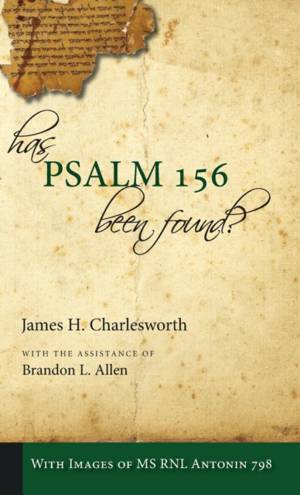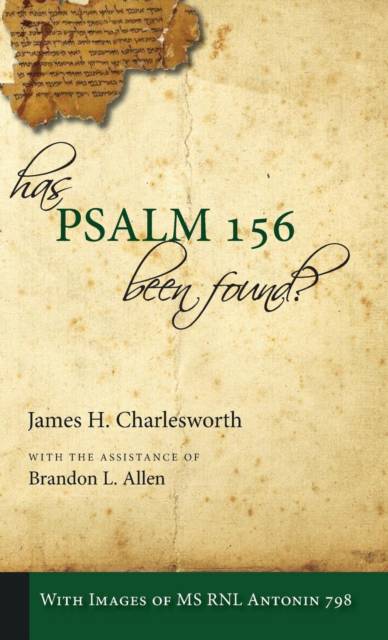
Bedankt voor het vertrouwen het afgelopen jaar! Om jou te bedanken bieden we GRATIS verzending (in België) aan op alles gedurende de hele maand januari.
- Afhalen na 1 uur in een winkel met voorraad
- In januari gratis thuislevering in België
- Ruim aanbod met 7 miljoen producten
Bedankt voor het vertrouwen het afgelopen jaar! Om jou te bedanken bieden we GRATIS verzending (in België) aan op alles gedurende de hele maand januari.
- Afhalen na 1 uur in een winkel met voorraad
- In januari gratis thuislevering in België
- Ruim aanbod met 7 miljoen producten
Zoeken
Omschrijving
Jews and most Christians know about only 150 "Psalms of David"; they were collected in the Davidic Psalter of the (Masoretic) Hebrew Bible or Old Testament. Since about 200 BCE, the Greek translation of the Davidic Psalter contained 151 Psalms of David. Thanks to research on the Qumran Psalms Scroll and the early Syriac Bible, most scholars know about 155 Psalms of David, and they were included in the well-known Old Testament Pseudepigrapha as "Non-Masoretic Psalms." Virtually unknown to biblical scholars is Psalm 156. It is preserved in a medieval copy found in the Cairo Genizah, as are other major early Jewish compositions, notably the Damascus Document and the Testament of Levi. Psalm 156 is extensive and almost as long as Psalm 119. It preserves visions attributed to David. The work opens new windows for looking into the creative world of Second Temple Judaism.
Specificaties
Betrokkenen
- Auteur(s):
- Uitgeverij:
Inhoud
- Aantal bladzijden:
- 160
- Taal:
- Engels
Eigenschappen
- Productcode (EAN):
- 9781532642401
- Verschijningsdatum:
- 8/10/2018
- Uitvoering:
- Hardcover
- Formaat:
- Genaaid
- Afmetingen:
- 140 mm x 216 mm
- Gewicht:
- 353 g

Alleen bij Standaard Boekhandel
+ 119 punten op je klantenkaart van Standaard Boekhandel
Beoordelingen
We publiceren alleen reviews die voldoen aan de voorwaarden voor reviews. Bekijk onze voorwaarden voor reviews.









